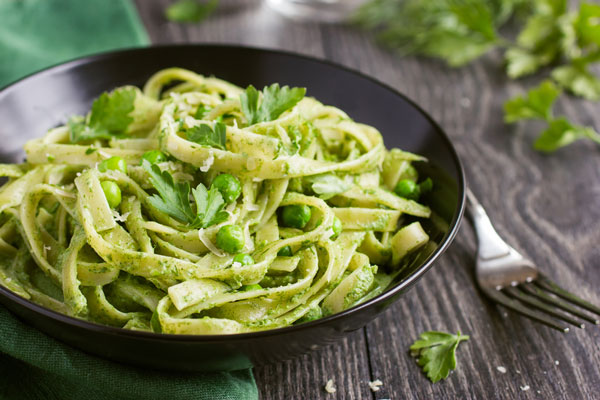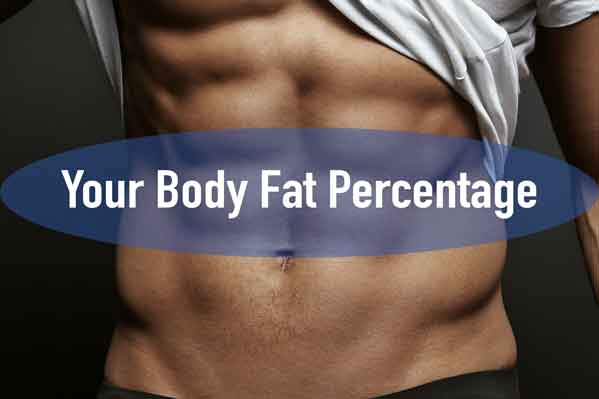Is Eating Carbs Late at Night Bad for You?

Carbs are highly controversial these days. You've heard it all... On one hand, you have the advocates of don't eat carbohydrates during the evenings, with the supposed reason that it will all be stored as fat.
On the other hand, you have the carb-fanatics who will swear by eating carbs late at night, because they are simply a “must” for your health and wellbeing.
So, what is the truth?
Eating Carbohydrates at Night
The answer to the topic’s question is not a simple one to just say “Yes, I am sorry you shouldn't eat carbs at night” or “No, don't avoid them and eat at as many as you wish for!
“Why is that? Why can't it be just a simple yes or no answer?
Well, the “problem” with carbohydrates is that the moment you start eating them it begins a process in the human body called “anabolism”. As soon as you start chewing carbohydrates the digestion process starts.
More specifically, the salivary gland and the pancreas will start producing a hormone called “amylase” in order to hydrolyse dietary starch into oligosaccharides and disaccharides which are converted by other enzymes to glucose. Glucose will circulate in your bloodstream to supply the body with energy.
The Insulin Paths
In order to control the elevating blood glucose levels, the human body will start producing another hormone called “insulin”. Insulin helps cells to take in glucose to be used for energy.
But what will happen when your body doesn't require any more energy?
If the body has sufficient energy, the excess energy from digested carbs will be converted into “glycogen” which will be stored in the liver and the muscle tissue.
But there is a catch… The glycogen storage is not of unlimited capacity.
That means, if your body has maxed out the glycogen storage capacities, it will now convert the upcoming blood glucose to triglycerides in order to store it to fat cells.
Remember, your body doesn't want anything to get wasted when you eat. It will either be used immediately as energy or stored as energy (glycogen, fat, muscle fibers) for an emergency situation.
Pros for Not Eating Carbs at Night
If carbs were deducted from those who were eating carbs regularly at night, then a slight weight loss should occur.
This will happen due to a numerous of reasons.
Firstly, glycogen is always retaining water. That means that if you have low stores of glycogen you'll weigh lesser than if you have maxed out stores (although it's important to realize that this isn't the same as fat loss).
Moreover, every gram of carbohydrate is equivalent to 4kcal. A typical restaurant-size plate of carbs equals approximately to 200-400kcal. Having reduced carbs at night will reduce the overall calories you take from food leading to a slight weight loss.
Cons for Not Eating Carbs at Night
Carbs are the favourite energy source of your body.
Therefore if you cut carbs at night, you may potentially notice some adverse effects.
This can cause late night cravings which may lead to binge eating, junk food consumption and problems getting to sleep.
Furthermore, as stated previously, eating carbs will make the human body secrete insulin, which is an anabolic hormone that makes your body build muscle mass and recover from injuries faster.
If you stop eating carbs at night, the recovery process will not be accelerated and only perhaps even occur at a slower pace.
When You Should Eat Carbs Is All About Balance
You've heard it a thousand times before, but in the end it's all about calories in, calories out. Your body needs “X” amount of calories every day.
If you eat more than your body requires to function properly, this energy surplus will be stored as fat.
If you eat less than your body requires, the energy needed will be taken from the glycogen, the fat cells and sometimes muscle tissue too, leading eventually to a weight loss.
The Verdict
Eating carbs at night can both be beneficial and unbeneficial for your body depending on a number of factors.
How much you eat during the day is much more important than when you eat.
For example, a person living a sedentary lifestyle who ate a good amount of carbs in the morning and in lunchtime, will probably not require any more carbs for the rest of the day and it will be for the best to avoid eating carbs at night.
On the contrary, an active person who trains vigorously daily and in the afternoon, it will be an absolute necessity to eat carbs after training at night.
Target the Quality of Carbohydrates
Not all carbs are the same. There are three main categories of carbs:
a) Sugars
b) Starch
c) Fibre
Long story short, you should avoid consuming excess added sugar and aim for whole starch and fibre. Starchy carbs include peas, corn, beans, lentils, potatoes, bread, wheat, rice, pasta and barley, whilst fibre include all plant foods such as fruits, vegetables, whole grains, nuts and legumes.
Sugars can have a bad reputation because they are very fast-acting carbohydrates, which spike blood glucose levels and are “empty” calories which means they carry no essential vitamins or minerals.
Example of foods containing large amounts of sugar are syrups, table sugar, brown sugar, molasses, chocolate, cookies & biscuits, cake, pastries, donuts, fruit juice and breakfast cereals.
That's not to say they must be avoided at all costs but its consumption should be limited with exception of post work out nutrition (where sugars can help “kick start” the recovery process).
Conclusion
The most important thing of all is to learn to listen to your body and always plan your meals ahead (using a meal planner can certainly help if you need more discipline).
Nevertheless, if you find yourself extremely hungry at night, but you feel that you have had enough carbs throughout the day, then eating something that combines protein, healthy fats, and slow-digesting carbs can easily suppress your appetite.
Simple, quick and healthy snacks that will keep you full for hours can be a fibre-cracker with cottage cheese, a Greek-yoghurt with flaxseed, a hard-boiled egg, oatmeal with oats, milk, and cinnamon or a handful of nuts.
Guest Writer
Faidon D. Siokos
Registered Dietitian



